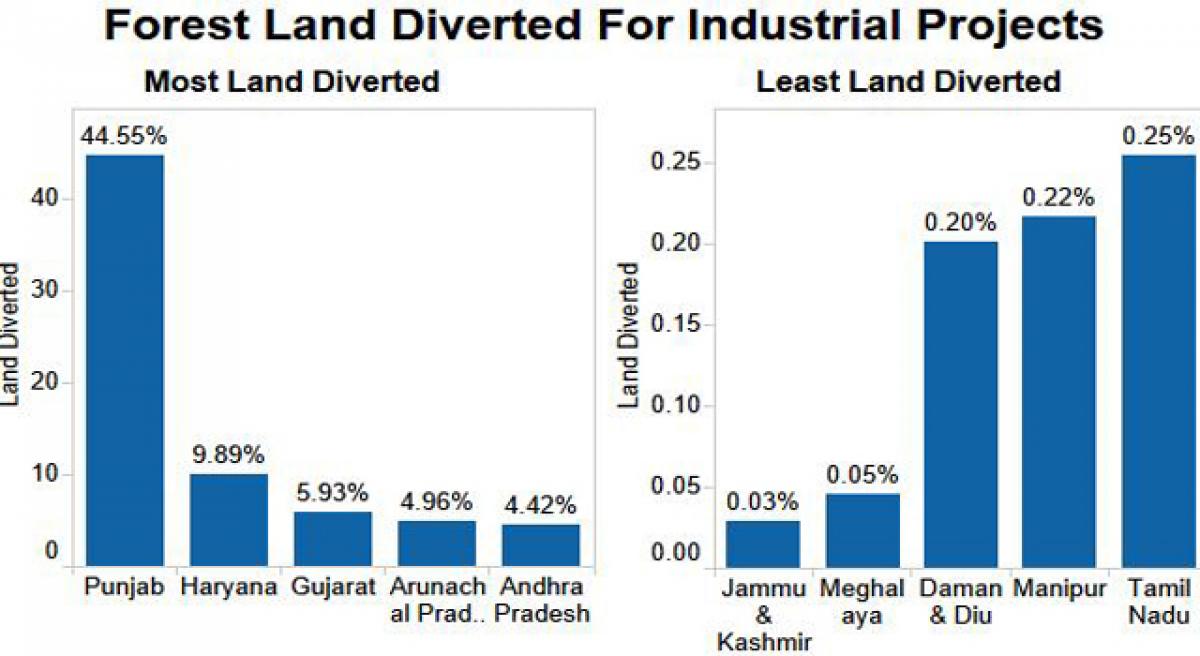Live
- Revanth assures Kurma community of its due
- 204 cadets pass out of AFA
- Youngest chess king wins laurels for India
- FairPoint: Rahul’s rhetoric falls flat as PM Modi steals spotlight
- Notice issued to SGPC chief Dhami
- PM Surya Ghar scheme set to surpass a decade’s installation growth in a year
- Centre should probe Soros-Gandhis nexus
- Student held, released after counselling
- Thousands witness Sagara Harathi
- Devotees participate in Kalasa Jyothi procession
Just In

In the social media a particular photo of a Polar bear dying of starvation is making the rounds. Some time back, fish in Hussainsagar Lake died in large numbers due to the effluents released from the industrial units into it through different streams.
In the social media a particular photo of a Polar bear dying of starvation is making the rounds. Some time back, fish in Hussainsagar Lake died in large numbers due to the effluents released from the industrial units into it through different streams. The moot question is if fish and Polar bears can become victims, are humans not vulnerable?
The model of development that the humans have chosen based on the exploitation of nature may finally end up as the single important cause for the extinction of human race along with other forms of life on planet earth. There are no external forces that are driving human beings to take the path of destruction.
They stem from an inborn innate mindset that is loaded with ambition and a materialistic greed that aims at serving vested interest fully oblivious of the adverse impact those steps have on the rest of the society and environment. Industry always talks of comparative advantage but at what cost this comparative advantage is achieved is questionable.
The comparative advantage of pharmaceutical industry has as much to do with their ability to pollute and get away with it due to a slack regulatory regime as it is to the inherent strengths of the industry. Any country where anything can be got done for a price and the chances of being caught are rare and even when one is caught, one has a way to get away from it, that country becomes the manufacturing base for all hazardous products, which the more civilized population in other countries would object to and ensure such industries are not located in their regions.
In the anxiety for higher GDP growth, higher industrial growth and becoming a manufacturing base for the world, countries like India and China are becoming the manufacturing centres for such hazardous industries. The recent huge pollution problem that engulfed the national capital is another example in this direction. Unregulated industrial exhausts at levels not permissible along with out-dated farming methods of burning hay have ensured a peculiar cocktail being brewed specific to NCR.
The higher incidence of diseases like cancer, breathing problems and abdominal problems can be straight away linked to pollution .Though there exist bodies like Pollution Control Boards, and Tribunals, their effectiveness in delivering results is rather debatable and highly questionable.
The situation in the rural areas is no better, especially in those areas where commercial crops are grown more.
Recently in Yavatmal, about 500 farmers were hospitalised and 11 farmers died due to excessive use of pesticides in cotton cultivation. The biggest victims of pesticide poisoning in rural areas are agricultural labour, who take up this work unprotected and there is no regulatory mechanism in place to ensure they are properly protected while doing pesticide spray.
At the macro-level we have the problem of greenhouse gas emissions which is resulting in global warming and consequent threat to all forms of life on the planet. The problem has become so acute today that scientists are not just talking about reducing further emissions of green house gasses but on how to capture the existing carbon dioxide in the atmosphere, which is already beyond the permissible levels.
Thus over-emphasis on GDP growth unmindful of its negative consequences has two important adverse effects, one at the global level and the other at a micro-level. At the micro-level, fish die in the Hussiansagar Lake due to polluted effluents from the pharmaceutical Industry in Hyderabad. Farmers and agricultural labourers either die or have become sick due to excessive use of pesticides in the villages. At the macro-level due to global warming polar bears are not finding food necessary for their survival.
Fundamental to this issue is the development paradigm human race has chosen based on exploitation of nature and the greater pursuit of material wealth unmindful of its consequences on nature and humanity as a collective whole. If we as a race have to survive there is a need for a fundamental shift in the development model itself based on living in harmony with nature and one based on contentment not of greater material wealth.
Without addressing this fundamental issue we keep on talking about reducing the greenhouse gases emission or capturing the carbon dioxide in the atmosphere we are, I fear only addressing the peripheral issues without touching the core. (The writer is former Chief Secretary of Andhra Pradesh)

© 2024 Hyderabad Media House Limited/The Hans India. All rights reserved. Powered by hocalwire.com







